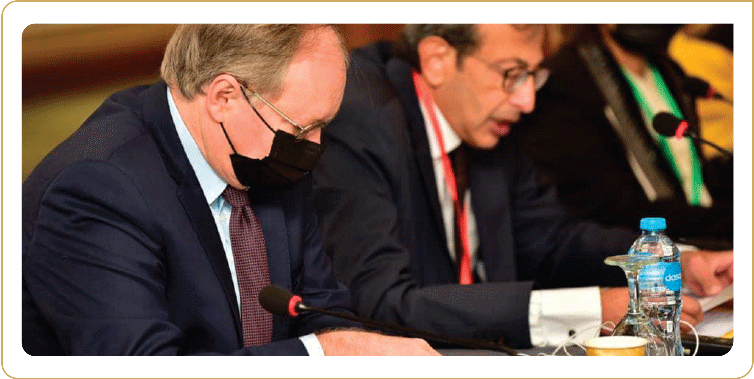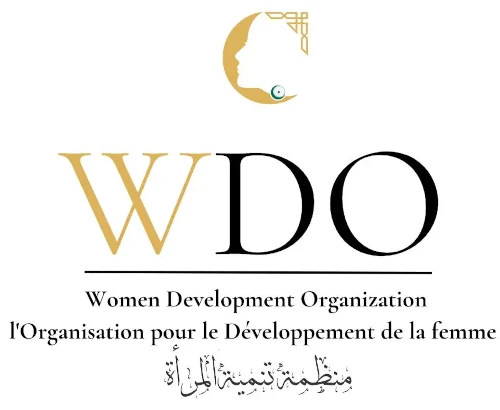During the opening session of the workshop, H.E. Ambassador Ehab Fawzy, the Deputy Executive Director of WDO, welcomed the participants and the guests who are either attending the workshop in person or virtually via Zoom. He thanked the NCW, the EU, and UN-Women for partnering with WDO to make this workshop a success despite the actual critical circumstances, which the world is going through because of the COVID-19 Pandemic. He also thanked the Experts of the CEDAW Committee for coming to Cairo to conduct the training, and transfer their experience and knowledge to the representatives of WDO member states.
Ambassador Fawzy highlighted that since WDO is a newly established organization within the international community, this workshop will help it in achieving three of its objectives through assisting in building the capacities of WDO representatives on reporting techniques to CEDAW Committee, and also contribute to building the bridges between member states’ experts and the WDO from one side, and the treaty body from another side. He added that this training will be one within a series of trainings that will be organized by WDO, to build the capacities of its member states in this regard.
Finally, he explained that this training will be composed of many sessions. The first day will be mainly on the normative and conceptual frameworks of the Convention including the International Human Rights Framework and Legal Instruments, and what member states should report on to the Committee. The first day will include exercises during some of its sessions, followed in the the second day, with a focus on techniques to draft the reports to CEDAW Committee, and a simulation for presenting the report in front of the Committee.
In his statement during the opening session, H.E. Ambassador Christian Berger, the Head of The European Union Delegation to Egypt, mentioned that the recent establishment of the WDO is an important addition that will support the agenda of women’s rights. Adding that the EU is a global front-runner in promoting women’s empowerment and integration in all aspects of sustainable and inclusive development. He believes that achieving an impact through different interventions depends on the existence of an enabling environment. This is why the EU highly welcomes this workshop, which aims to strengthening dialogue and capacities to meet the shared goals of international commitments.
In her statement, Ms. Susanne Mikhail, the Regional Director of UN Women for the Arab States in Egypt, thanked WDO and commended the Government of Egypt, particularly the National Council for Women and the Ministry of Foreign Affairs, as well as the EU Delegation to Egypt for this loudable initiative. She further underscored the importance of this training which will contribute to increased capacities of monitoring and reporting against CEDAW commitments, and hence, further strengthen the evidence-base allowing continuous refinement of the actual implementation of CEDAW. “Women’s rights are more important than ever, as all the evidence we have at hand shows concretely the strong correlation between women’s rights, national development, social development, economic development and political development. She added that these three elements are crucial for overall prosperity and stability.”
The opening session witnessed also a presentation by Ms. Suzan Mohamed, the representative of the Organization of Islamic Cooperation, on the OIC Plan of Action on the Advancement of Women (OPAAW), and the linkages between CEDAW and OPAAW.
The opening session was also attended by representatives of OIC member states, the Islamic Chamber for Commerce, UNICEF, the International Organization for Migration, and the United Nations Office for Drugs and Crime (UNODC).




